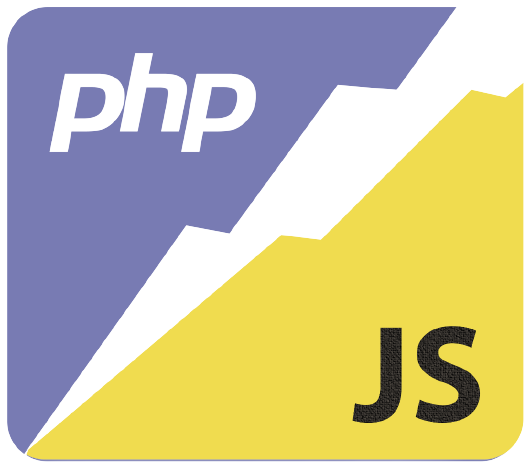Blob
Blob stands for "Binary Large Object," and it is a data type used to store binary data such as images, audio files, or videos.
Blobs can be easily manipulated with QuickRequest, whether for upload or download.
Upload File
If you want to upload files through QuickRequest, use the POST method. It's important to define the form in your HTML with enctype="multipart/form-data".
- Routes in
web.php:
Route::post('/upload-image', [YourController::class, 'uploadImage']);Route::post('/upload-image', [YourController::class, 'uploadImage']);- HTML Form: To create a file-upload form, structure it as follows:
<form id="uploadFile" enctype="multipart/form-data">
<!-- ... -->
<input type="file" id="image" name="image" accept=".jpg, .jpeg, .png">
<!-- ... -->
</form><form id="uploadFile" enctype="multipart/form-data">
<!-- ... -->
<input type="file" id="image" name="image" accept=".jpg, .jpeg, .png">
<!-- ... -->
</form>- QuickRequest Syntax: In this case, always use
formas the data source for QuickRequest:
QuickRequest().post({
url: '/upload-image',
form: 'uploadFile',
success: function(res){
console.log("Successful Process");
},
error: function(err){
console.error("Error: " + err.data.message);
}
});QuickRequest().post({
url: '/upload-image',
form: 'uploadFile',
success: function(res){
console.log("Successful Process");
},
error: function(err){
console.error("Error: " + err.data.message);
}
});This way, all values from your form, including files, will reach the backend. Forget about creating FormData and other validations to upload a file.
Download File
If you want to download a file, you can easily do it using the GET method.
- Routes in
web.php:
Route::get('/image/{name}', [YourController::class, 'findImage']);Route::get('/image/{name}', [YourController::class, 'findImage']);- Method in
YourController.php:
public function findImage($name)
{
/**
* Execute actions.
* In this example, search for an image
* in the public folder.
*/
$pathToImage = public_path($name . ".jpeg");
$imageContents = file_get_contents($pathToImage);
/**
* Return the image as a "Binary Large Object" (Blob).
* Important to define ->header('Content-Type', ?)
*/
return response($imageContents, 200)->header('Content-Type', 'image/jpeg');
}public function findImage($name)
{
/**
* Execute actions.
* In this example, search for an image
* in the public folder.
*/
$pathToImage = public_path($name . ".jpeg");
$imageContents = file_get_contents($pathToImage);
/**
* Return the image as a "Binary Large Object" (Blob).
* Important to define ->header('Content-Type', ?)
*/
return response($imageContents, 200)->header('Content-Type', 'image/jpeg');
}- QuickRequest Request:
Now that you are receiving an image as a "Binary Large Object," let's easily download it with QuickRequestBlobs:
const nameImage = 'LaravelLogo';
QuickRequest().get({
url: '/image/' + nameImage,
expect: 'blob', // Mandatory
success: function (res) {
/**
* To download the file, simply
* Use the QuickRequestBlobs object that facilitates
* the action.
*/
QuickRequestBlobs.setBlob(res.data) // Always arrives at this position the blob
.setName("Test") // Preferably without spaces.
.setExtension("jpeg") // Lowercase extension without the dot.
.download();
},
error: function (err) {
console.error("Error: " + err.data.message);
}
});const nameImage = 'LaravelLogo';
QuickRequest().get({
url: '/image/' + nameImage,
expect: 'blob', // Mandatory
success: function (res) {
/**
* To download the file, simply
* Use the QuickRequestBlobs object that facilitates
* the action.
*/
QuickRequestBlobs.setBlob(res.data) // Always arrives at this position the blob
.setName("Test") // Preferably without spaces.
.setExtension("jpeg") // Lowercase extension without the dot.
.download();
},
error: function (err) {
console.error("Error: " + err.data.message);
}
});Reminder
In controllers, always use the ->header('Content-Type', '?') method, where ? will be the corresponding value according to the type of file you want to download.
Here are some common headers:
| File Type | Content-Type Header |
|---|---|
| JPEG Image | Content-Type: image/jpeg |
| PNG Image | Content-Type: image/png |
| GIF Image | Content-Type: image/gif |
| BMP Image | Content-Type: image/bmp |
| WebP Image | Content-Type: image/webp |
| SVG Image | Content-Type: image/svg+xml |
| PDF Document | Content-Type: application/pdf |
| Excel Spreadsheet (XLSX) | Content-Type: application/vnd.openxmlformats-officedocument.spreadsheetml.sheet |
| Word Document (DOCX) | Content-Type: application/vnd.openxmlformats-officedocument.wordprocessingml.document |
| PowerPoint (PPTX) | Content-Type: application/vnd.openxmlformats-officedocument.presentationml.presentation |
| CSV (Comma-Separated Values) | Content-Type: text/csv |
| XML | Content-Type: application/xml |
| ZIP Archive | Content-Type: application/zip |
 PHP2JS
PHP2JS